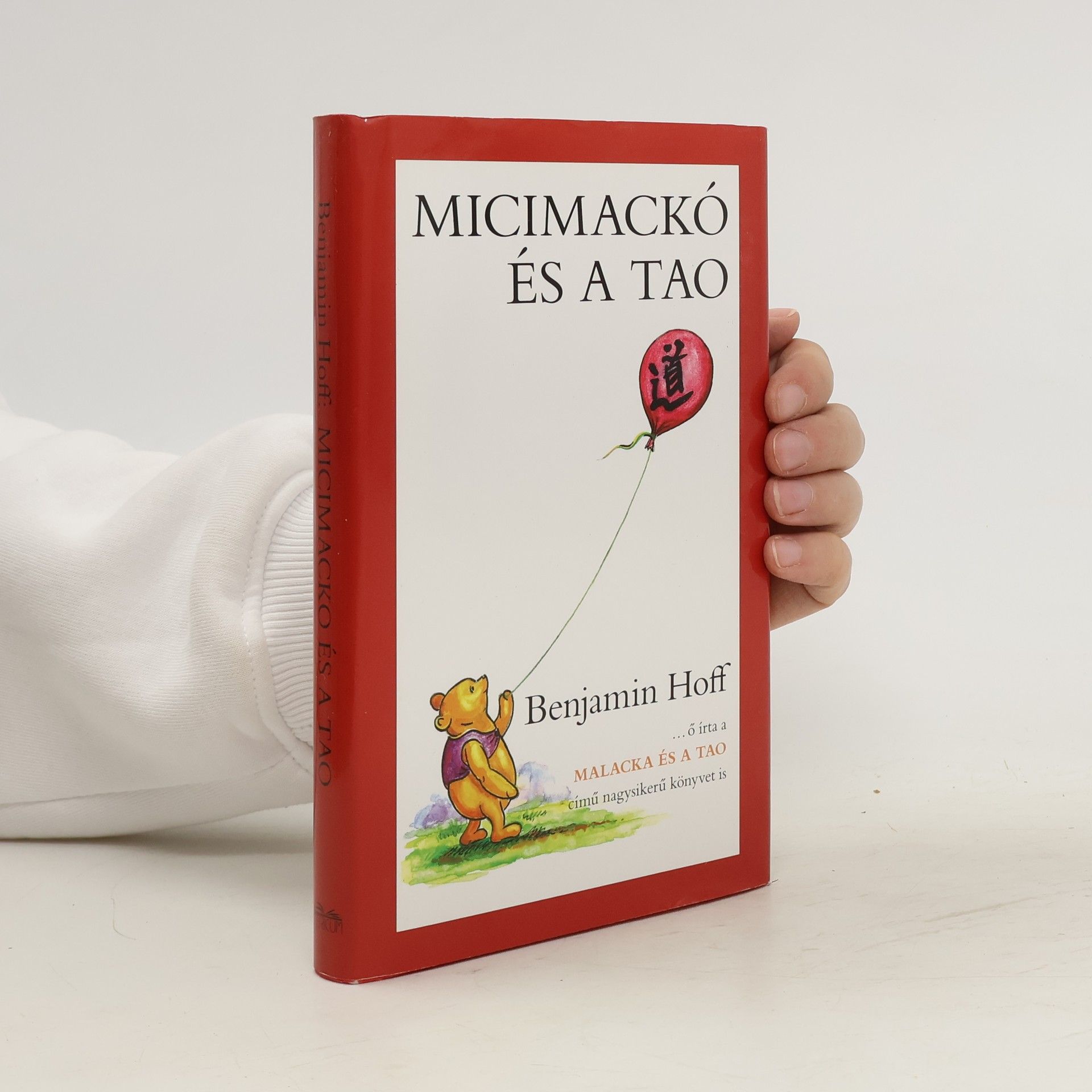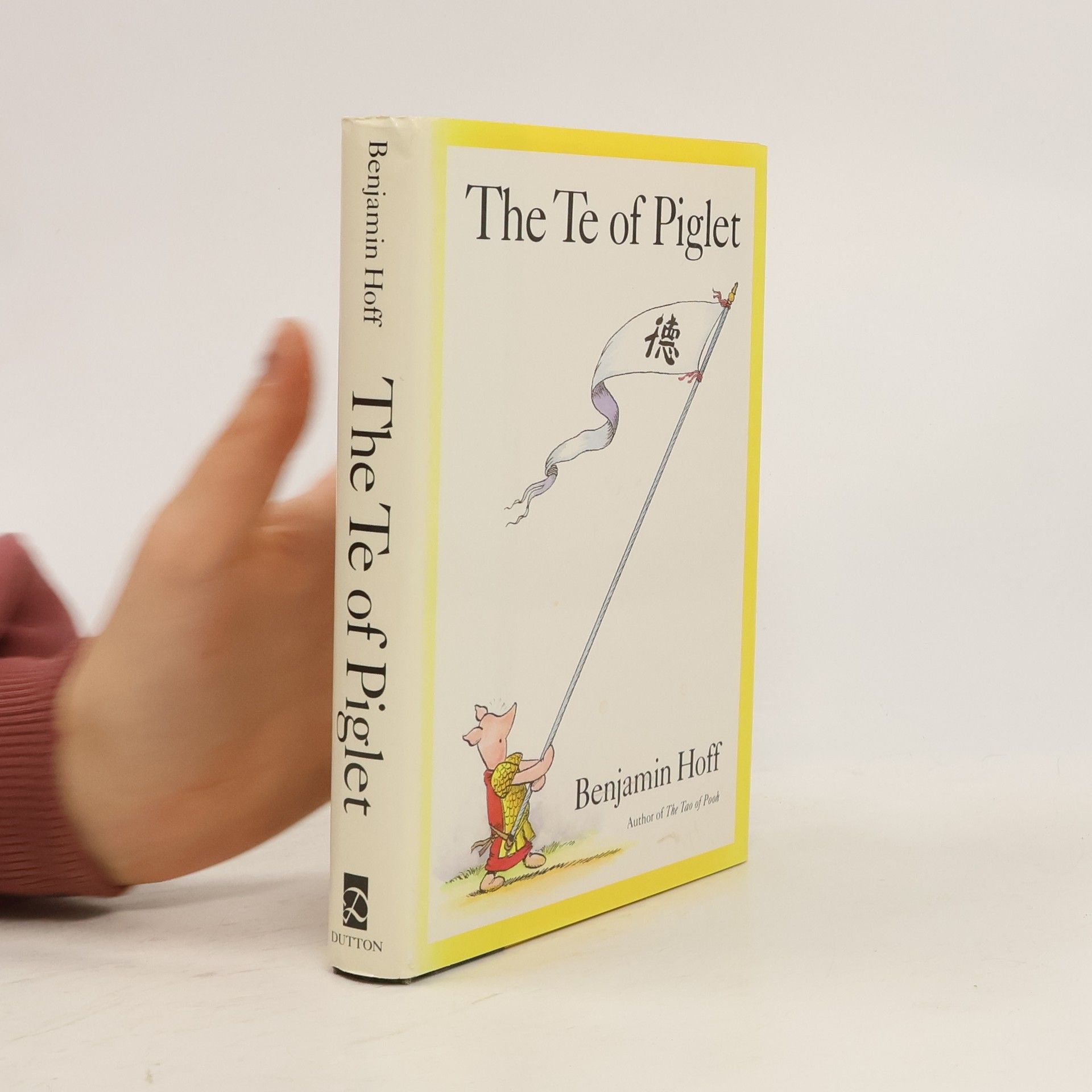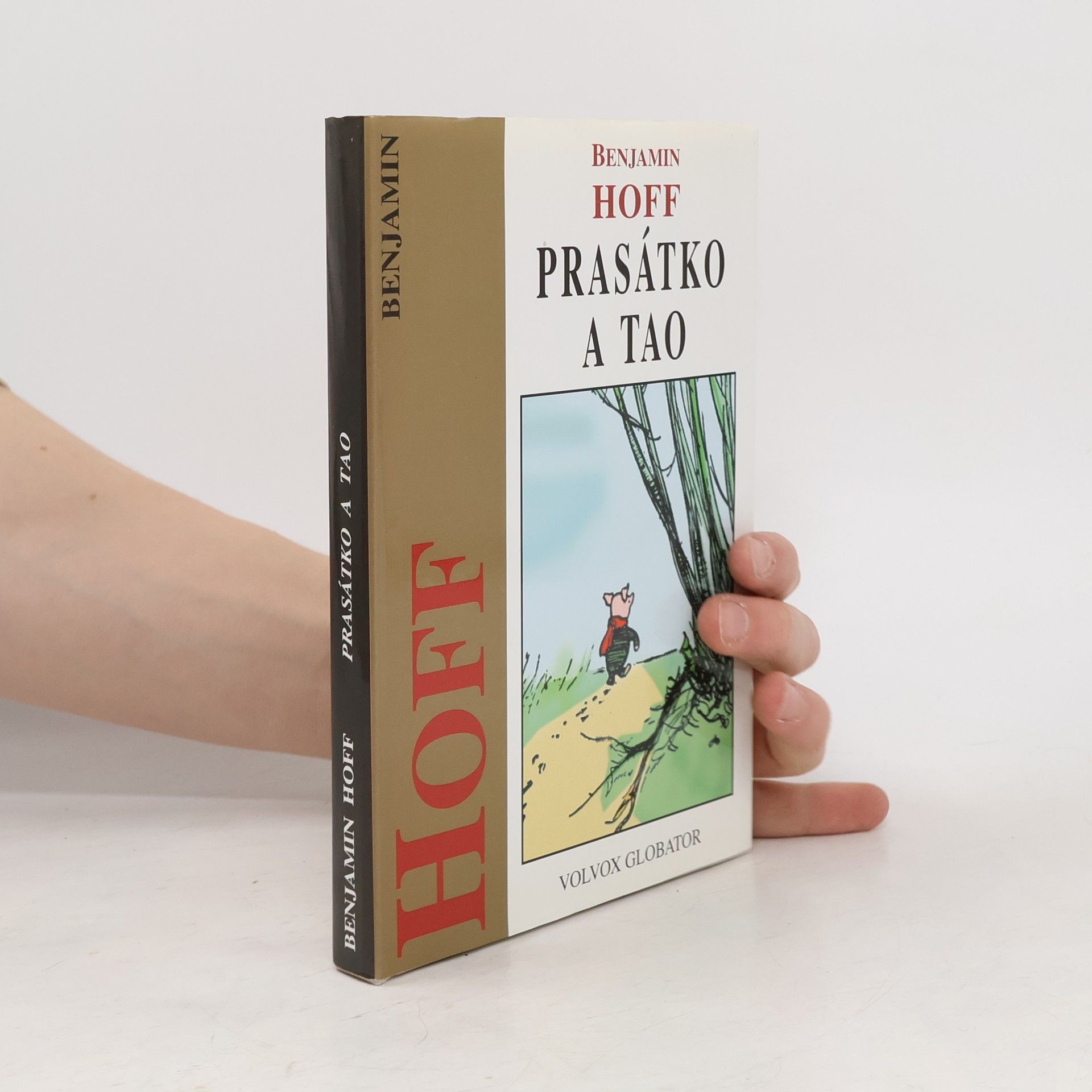Spisovatel, fotograf, instrumentalista a skladatel se nechal inspirovat legendární postavičkou Medvídka Pú, ale i dalšími zdroji jako je asijské a japonské umění, taoistickou a zenovou filozofií a jógou. Kniha má další volné pokračování Prasátko a Tao.
Benjamin Hoff Knihy
Hoff čerpal z lásky k přírodě, kterou si vypěstoval v dětství, a z hlubokých znalostí asijské kultury a filozofie. Jeho díla, ovlivněná studiem umění, hudby a zejména taoismu, se zabývají tématy harmonie, rovnováhy a smyslu života s jedinečnou, meditativní lehkostí. Hoff se zaměřuje na pronikání do podstaty světa skrze jednoduchost a přirozenost, často s využitím alegorií a metafor. Jeho psaní vyzývá čtenáře k zamyšlení nad hlubšími pravdami v každodenním životě.







Prasátko a Tao
- 150 stránek
- 6 hodin čtení
Volné pokračování autorova bestselleru Pú a tao přibližuje další zásady taoistického učení Tentokrát se pozornost soustřeďuje na postavu prasátka - "velmi malého a nenápadného zvířátka", které jak v původním příběhu, tak v této knize projde Cestou, tj. prodělá určitou vývojovou změnu.
The Eternal Tao Te Ching
- 272 stránek
- 10 hodin čtení
The bestselling author of The Tao of Pooh offers a uniquely authentic translation of the enduring Tao Te Ching , based on the meanings of the ancient Chinese characters in use when the Taoist classic was written.From Benjamin Hoff, author of The Tao of Pooh and The Te of Piglet, which have sold millions of copies worldwide, comes The Eternal Tao Te Ching , a new translation of the Chinese philosophical classic, the Tao Te Ching.The Eternal Tao Te Ching is the first translation to employ the meanings of the pre-writing brush characters in use 2,400 years ago, when the classic was written, rather than relying on the often-different meanings of the more modern brush characters, as other translations have done. Hoff points out in his chapter notes the many incidents of meddling and muddling that have been made over the centuries by scholars and copyists, and he corrects the mistakes and removes such tampering from the text. Hoff also makes the provocative claim—and demonstrates by revealing clues in the text—that the Tao Te Ching ’s author was a young nobleman hiding his identity, rather than the long-alleged author, the “Old Master” of legend, Lao-tzu. And Hoff’s chapter notes shed new light on the author’s surprisingly modern viewpoint. With a selection of lyrical color landscape photographs by the author, this is a unique, and uniquely accessible, presentation of the Tao Te Ching .
The Te of Piglet
- 257 stránek
- 9 hodin čtení
The author and the characters from the Pooh books engage in dialogue elucidating the Taoist principle of Te, the Way of the Small.